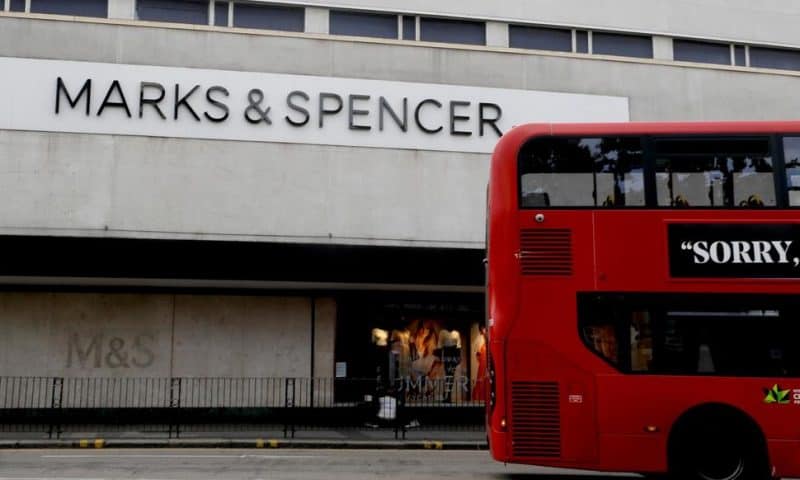U.K. retailer Marks & Spencer says it plans to eliminate about 7,000 jobs as it streamlines management and store operations after sales plunged during the COVID-19 pandemic.
LONDON — British retailer Marks & Spencer plans to eliminate about 7,000 jobs as it streamlines management and store operations after sales plunged during the COVID-19 pandemic.
The job cuts, which represent about 9% of the company’s workforce, will occur over the next three months and affect Marks & Spencer’s central office, regional management and U.K. stores, the London-based grocery, clothing and housewares chain said Tuesday.
Sophie Lund-Yates, an analyst at financial services firm Hargreaves Lansdown, said the cuts stemmed from Marks & Spencer’s understanding that drastic measures were needed to survive.
“M&S has realized it needs to act now if it wants to secure the longevity of the business,″ she said. “Coronavirus has exacerbated existing fault lines – namely that shopping habits have changed and M&S has been slow off the mark meeting those shifting demand patterns.”
Retailers have eliminated thousands of jobs as the pandemic accelerates the shift to online shopping, with many consumers shunning traditional stores amid concerns about COVID-19 and government-imposed restrictions designed to slow the spread of the virus. The Debenhams department store chain in Britain, for example, announced another 2,500 staff cuts in recent weeks.
“There remains substantial uncertainty about market conditions and the duration of social-distancing measures, and we are retaining a cautious approach to planning for the balance of the year,″ Marks & Spencer said in a statement.
Group revenue fell 13.2% in the quarter ended Aug. 8, driven by a 38% drop in in-store sales of clothing and housewares, the company said. Some 68% of Marks & Spencer’s orders were delivered to customers’ homes during the quarter, compared with 29% during the same period last year.
The company acknowledged that there is a new normal in the offing.
“These proposals are an important step in becoming a leaner, faster business set up to serve changing customer needs,″ Chief Executive Steve Rowe said.

